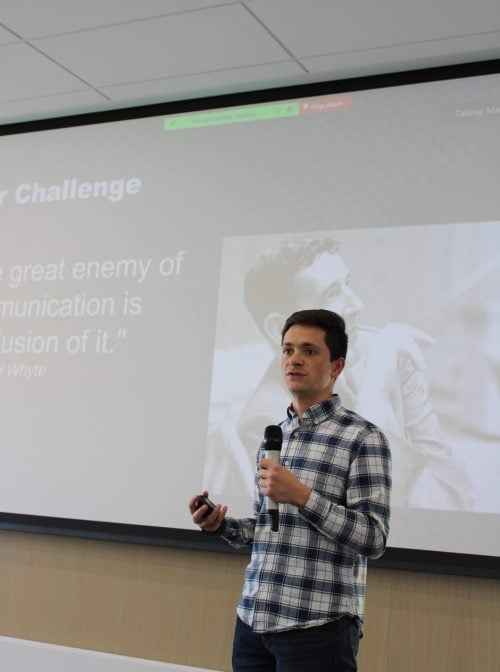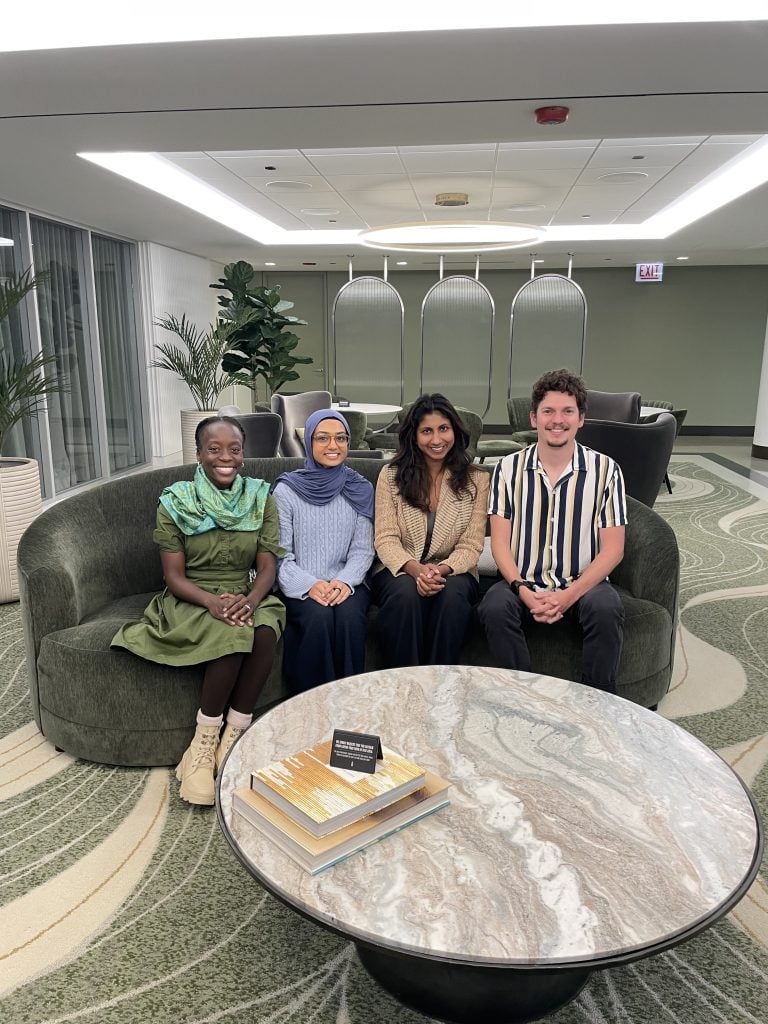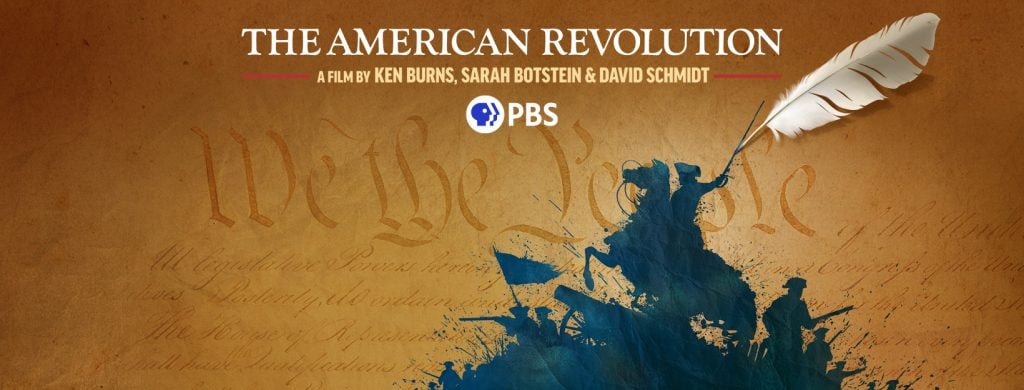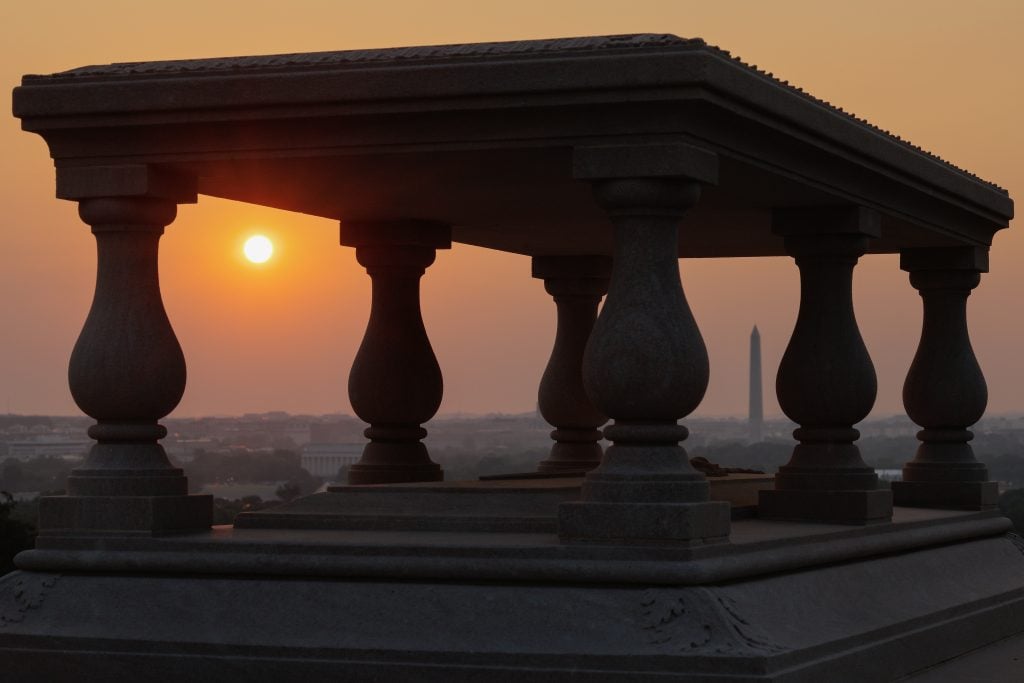Thanks to an Advancing Religious Pluralism grant from Interfaith America, at Utah State University (USU) an interfaith initiative spearheaded by Anthropology Professor Bonnie Glass-Coffin more than a decade ago has joined with several other organizations and initiatives. Together, they weave the vision, knowledge, and skills necessary for appreciative engagement across religious differences into wider efforts that foster civic engagement, student character development, and peacebuilding.
Under the umbrella of the College of Humanities and Social Sciences’ Heravi Peace Institute (HPI), professors and professional mediators from Anthropology, Religious Studies, and Communication Studies brought together a team of student leaders with training in either Conflict Management/Facilitation, Conversational Space-Making, or Interfaith Leadership to identify and share with one another the common values, vision, knowledge, and skills of their respective certificate and training programs. HPI’s mission is to “build peace through the proactive implementation of attitudes, skills, structures, and institutions that practice nonviolent collaboration and conflict transformation at the personal, interpersonal, family, community, inter-group, national, and international levels,”
After sharing what they had learned with one another, this team of students identified four themes important to conflict management, peacebuilding, and appreciative engagement across religious differences. They then designed four separate workshops during 2024-2025 that focused on each of these themes: Practicing Non-Judgment, Practicing Curiosity, Practicing Self-Awareness, and Practicing Interfaith Communication. The students presented these workshops — combining presentations, role-plays, and opportunities to debrief real-life scenarios — to more than 300 students, faculty, and community participants.
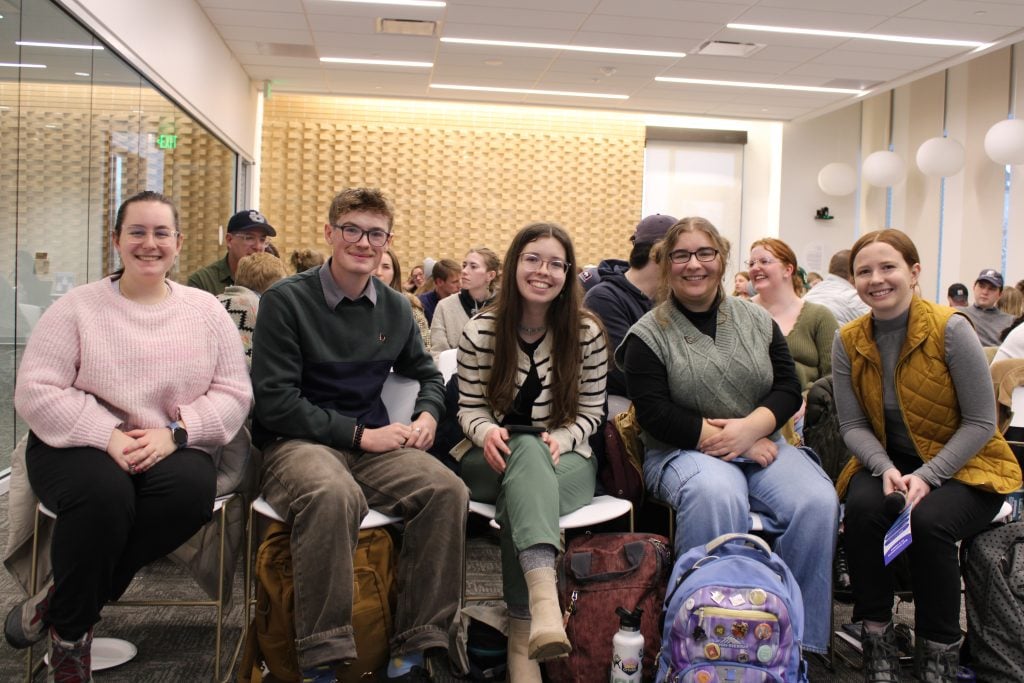
The impacts of this collaboration on our student leaders were summed up by Chloe Skinfill, the President of USU’s Interfaith Student Association. Chloe noted that “I learned so much from working with our diverse team. I was coming from a religion/interfaith background when it came to these workshops but hearing the perspectives of the Space-Makers changed my understanding of conflict and how I handle interfaith encounters.” Marisa Davis, a master’s-level Social Work student and a Conversational Space-Maker facilitator commented: “Developing the interfaith workshops taught me not only how to apply conflict resolution principles in a new area but also enhanced my own faith. I grew in respect for people’s unique practice of spirituality and felt more connected to my own practice.” Truman Phillips, another of our Space-Maker students, noted that “I loved being a part of the interfaith team … from these conversations, I have tried to practice Holy Envy by recognizing beautiful parts of other religious traditions and faith backgrounds.”
In speaking about the impacts of these workshops on participants, Reina Gilman, an Interfaith Leadership Certificate holder and HPI’s “Student of the Year,” noted that, “The goal of the bridging religious difference workshops was to encourage religious pluralism … by instilling [students] with the knowledge and skills they need to navigate multi-religious spaces like our campus. During the workshops … I could tell that the experience had a positive impact on how they engaged with themselves and the people around them.” As Marisa Davis affirmed, “I have run into several people who attended the workshops, and they have expressed to me how valuable the experience was! They remembered the lessons and grew more interested in interfaith work because of these.” Her assessment was echoed by participants in their evaluations of each of the four workshops, where most workshop attendees noted increased capacity for navigating difficult conversations as a result of the lessons they learned and the role-plays in which they participated. These workshops were recorded and are in the process of being incorporated into an online training that showcases the foundational (and common) skills and values necessary for civic engagement and peaceful interaction in an increasingly fractured world.

Besides the synergy between conflict management, peacebuilding, and interfaith dialogue that was the focus of these four workshops, other activities made possible by the Advancing Religious Pluralism grant included the creation of a new “interfaith track” in the very popular Conflict Management/Facilitation Certificate program that serves as foundational training for our university’s student Conversational Space-Makers, both founded and directed by Communication Studies Professor Clair Canfield. Additionally, our cross-listed course in Anthropology and Religious Studies entitled “Bridging Religious Differences in Theory and Practice” was revamped to be offered once each year by Professor Chad Ford, a professional conflict mediator and Religious Studies professor. This new version of a course that was formerly focused on classroom-based learning will now provide students with opportunities to continue creating training opportunities that go far beyond the classroom. Enrolled students will plan and deliver workshops as part of their classroom training that build upon the program offered during the 2024-2025 academic year.
Additionally, the grant generated so much excitement among our student co-conveners that they elected to combine forces and to create a new student club, combining the energy of the Interfaith Student Association and the Conflict Transformation/Peace-Building club. The mission of this new student organization, called Pathways to Peace, will be to “create opportunities for peacebuilding that are rooted in self and that branch into society.” The focus is on cultivation of both inner peace (through cultivation of self-awareness and self-reflection) and outer peace (through cultivation of the skills necessary to bridge conflict). The purpose of this new club is to foster a culture of active peacebuilding by providing individuals with the knowledge, skills, and principles necessary to engage meaningfully across differences. Grounded in respect, curiosity, and empathy, we emphasize engagement over mere proximity, recognizing that true peace requires effort, reflection, and action. We cultivate a space where people can explore diverse perspectives without fear of judgment, embracing pluralism as a strength. Through mindful dialogue and relationship-building, we empower individuals to bridge divides, foster understanding, and contribute to the civic good.
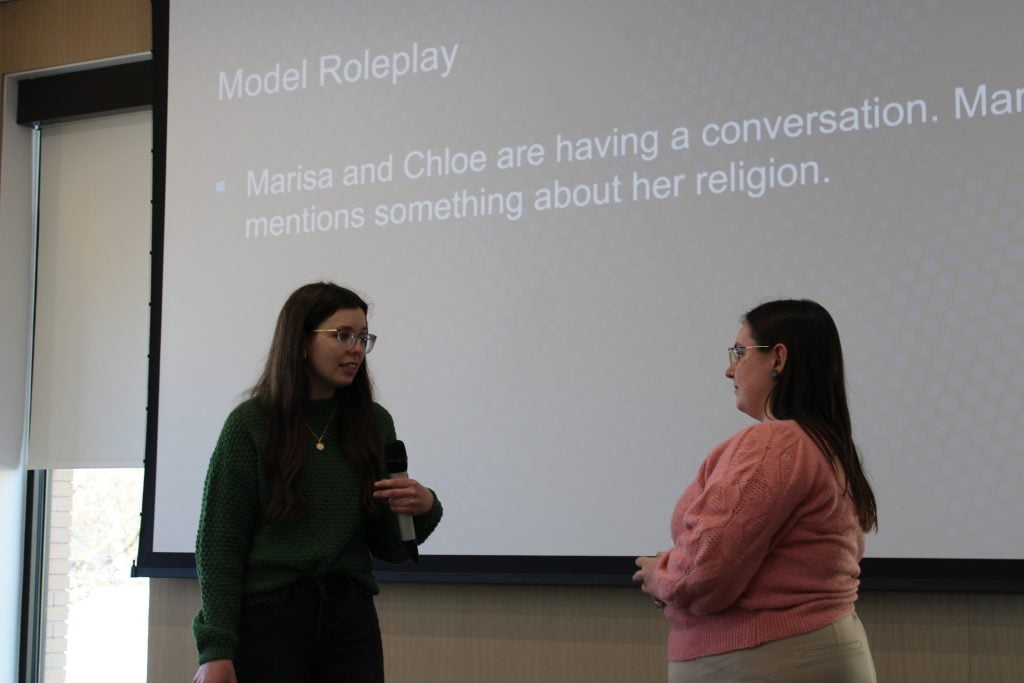
The efforts of our students, faculty, and support staff in the HPI — both in and beyond the classroom — have created an environment where appreciative engagement across differences is more tightly woven into a sustainable set of ongoing initiatives than ever before on our campus. Because this engagement is focused on enduring values like empathy, curiosity, deep listening, self-awareness, nonjudgment, and effective communication, we are confident that the knowledge, skills, and vision inherent to bridgebuilding and to excellence in civic engagement will continue to thrive on our campus and in our community. We are grateful for the opportunity advance religious pluralism on campus and the continued support of Interfaith America as we move forward in these efforts.
Prof. Bonnie Glass-Coffin (Anthropology) is the co-founder and director of Utah State University’s Interfaith Initiative. Thanks to ongoing support from Interfaith America, the Initiative has steadily developed and implemented curricular and co-curricular programming since 2014. These include campus-wide interfaith ally training programs, a vibrant student organization, and an 18-credit Interfaith Leadership Certificate. This year, as the initiative joins forces with the Heravi Peace Institute, and thanks to the passion and talent of Professor Clair Canfield (Communication Studies) and Professor Chad Ford (Religious Studies), Interfaith America’s Advancing Religious Pluralism grant has allowed us to explicitly align the vision of interfaith cooperation with training in conflict transformation and peacebuilding, resulting in even greater integration with USU’s Mission and Vision.
